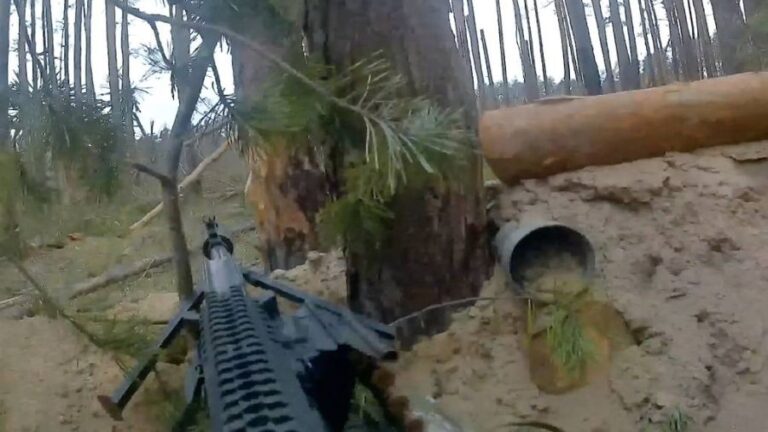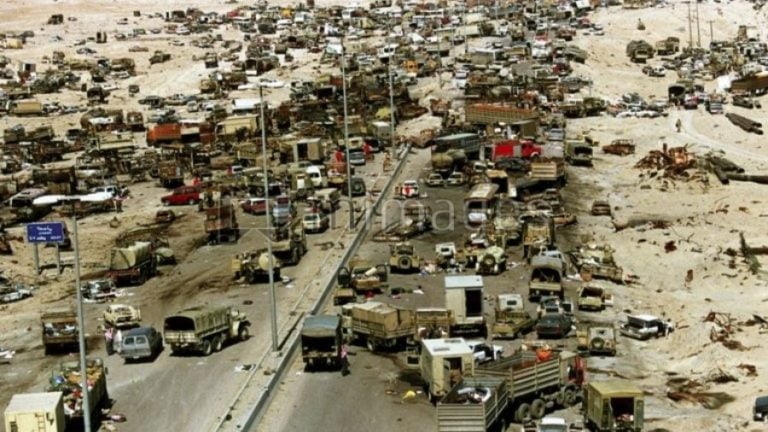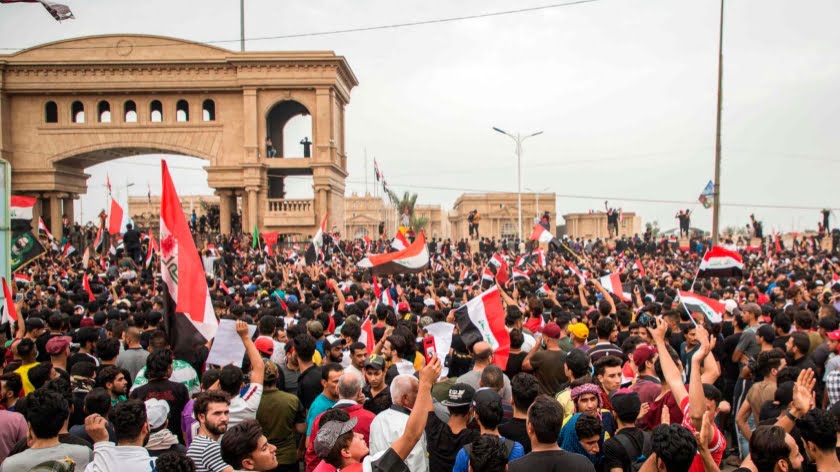Why Netanyahu Dares to Hit Iran’s Backyard in Iraq, Syria and Lebanon: Israel Accepts Hezbollah’s Challenge
Last week, Israel Prime Minister Benjamin Netanyahu rebuffed all existing Rules of Engagement (ROE) in Iraq and Lebanon, showing his readiness for war and an apparent willingness to ignite it. For the first time since 2006 his drones violated the old rules of engagement; an Israeli drone exploded in a southern suburb of Beirut, in unclear circumstances. Despite this lack of clarity and the attack’s less than obvious conditions and objective, a few hours later Hezbollah leader Sayyed Hassan Nasrallah promised to attack Israel in retaliation for the killing of two Hezbollah operatives in Syria. Now Netanyahu has attacked again. Israeli jet attacked a 1982 base of the Popular Front for the Liberation of Palestine-General Command FPLP-GC) in the Lebanese Bekaa Valley. This is a strong indication that Netanyahu accepts the challenge launched by Nasrallah, with all its consequences. It also indicates the continuation of Israel’s policy of provocation, its “long arm” that, it is claimed, can reach any target (without exception!), and its willingness to teeter on the edge of the abyss of war.
There is room for doubt about the explosion of a suicide drone in the suburb of Beirut, particularly as the objective was apparently insignificant from the intelligence and military points of view (damage to an empty building where the Hezbollah public relations office is situated) as reported by the local media. Nevertheless, it is clear that Israel would not risk of war with Hezbollah after 13 years of abstinence without targeting a substantial objective worthy of Hezbollah’s predictable reaction. Most probably, Prime Minister Netanyahu evaluated that the destruction of the target in the suburb of Beirut with a suicide drone could save many Israeli lives, and that the death of a few Israeli soldiers as “collateral damage” – a certain consequence of Hezbollah’s forthcoming hit – is an acceptable loss.
But it is highly unlikely that Israeli intelligence failed to identify the target Israel hit in Aqraba, 15 km from Damascus airport, used as a base for Hezbollah in Syria. Israel may have wrongly identified the house as an Iranian Revolutionary Guard Corps (IRGC) base – it is easy to guess that wherever the IRGC is present, Hezbollah is with it in Syria – a mistake that led to the killing of two Hezbollah members.
Notwithstanding these improbable considerations, the bombing of an insignificant Palestinian base bunker by an Israeli jet takes on the meaning of a challenging message, rather than an intelligence target. It tells us that Netanyahu has accepted the gauntlet Nasrallah threw down, and will proceed in his own confrontational policy.
Indeed, Israel is hitting hundreds of objectives in Syria and seems to have started to select targets in Iraq and Lebanon. This is based on three main objectives linked to Israel’s existence: build an army that unites Israel’s Jewish population with its government; engage when possible in “fights between wars” (carry out attacks and engage in small battles whilst war is taking place in a nearby country or prior to wars); hit any target that represents a potential danger to Israel’s existence anywhere in the world.
It is nothing new for Israel to hit nearby or even far-flung selected targets. Lebanon, Syria, Iraq, Iran, Yemen, Jordan and Egypt are at the top of Israel’s priority list and the rest of the world comes second- but it is still important to keep a close eye on other parts of the world.
In 1960 Israel went to Buenos Aires to abduct Adolf Eichmann and brought him back for trial to be found guilty for crimes against the Jewish people and sentenced to death. Moreover, Israel sent an assassination team to Beirut in 1973 to kill Palestinian leaders Kamal Idwan, Kamal Nasser, and Mahmoud Youssef Najjar. A total of fifteen Palestinian leaders and intellectuals were assassinated, among them Mahmoud al-Hamshari in Paris, Naim Khader in Belgium and Wael Zuaiter in Rome. In 1988, Israel sent an assassination team to Tunisia to kill the Palestinian commander Khalil al-Wazir, aka Abu Jihad, one of the founders of the PLO.
In 1981, fourteen Israeli jets attacked and destroyed Iraq’s nuclear facility, passing through Jordanian and Saudi airspace. In 2007, Israel flattened a suspected nuclear program facility (under development) in Syria.
In 2008, Israel assassinated the Hezbollah military chief and vice head of the military jihadi council Imad Mughnniyeh in Syria. In 2010, a large Israeli hit team was dispatched to the Emirates and managed to kill Hamas commander Mahmoud al-Mabhouh in Dubai. And Israel has not hesitated to assassinate Iranian nuclear scientists“ to prevent Iran from having a nuclear bomb”.
The above examples are cited to show that Israel has no consideration for any borders or sovereignty but its own. Under the pretext of “protecting its national security” from any present or future threats Israel takes the initiative to strike first.
Israel identifies what it considers to be threats, localises the target (s) and tries to eliminate the threat before it grows. This is the Israeli ideology of permanent war; Israel thinks in term of its military capabilities with little or no consideration for international law and boundaries. Israel considers itself located amongst hostile countries even though the last Arab-Israeli war dates back to the 1973 Yom Kippur War. Since then, Israel has taken the initiative to attack the Lebanon (three wars), Syria and Iraq.
Israel counts on its main “ally” (the USA) to ensure its superior status, threatening and intimidating surrounding countries directly or indirectly. In the case of a war initiative, Israel uses US intelligence capability to support its target killing and wars, and relies on Washington’s diplomatic weight to allow Israel to accomplish its military goal, or to draft a ceasefire if the course of the war is no longer to Tel Aviv’s advantage. The most advanced military, electronic and military industrial production and competence give Israel the upper hand in the Middle East, over all neighbouring countries. Moreover, Israel can rely on absolute cover from western media and an international umbrella for its acts, always under the pretext of its “right to defend itself”.
Israel’s war against Iran effectively started when it began assassinating Iranian scientists in 2010. The attacks against Iran’s “backyard” mounted to their peak during the 2006 war in Lebanon but failed to achieve Israel’s objectives. Israel went to Syria when the war started and decided to give a hand to jihadist terrorists with the hope of breaking the “Axis of Resistance” military supply line. The US brokered on Israel’s behalf Syria’s chemical weapons disarmament, and a “promoted” a friendly environment in the occupied north-east Syria among the Kurds.
Cleverly, Israel took advantage of the lack of readiness of President Bashar al-Assad to retaliate against Israel’s hundreds of attacks, and tried to cripple the Syrian army. The violation of Lebanese and Syrian airspace has become a “right of Israel,” and the bombing of Syrian Army military capabilities was justified by calling it an attack on “Iran’s warehouses in the Levant”.
Tel Aviv moved towards Iraq, in Iran’s backyard, to attack the regular security forces of the Federal Police and Hashd al-Shaabi who have declared animosity to Israel. Israeli leaders are aware that Iran has built a strong ideology in Iraq that was instrumental in standing up to, and defeating, the similar but opposite ideology held by the “Islamic State” group, which occupied a third of Iraq in 2014. The link and cooperation between some of Hashd al-Shaabi and other Iraqi organisations on one hand and Hezbollah-Lebanon on the other is far from being a secret. Israel seems to have destroyed Iraqi security forces’ warehouses to remove strategic missiles that could be used by Iraq in the case of a US war against Iran.
“Israel can destroy one or two or a hundred warehouses out of a thousand. To Israel, it means hundreds of missiles less to be launched against it in case of war. This is how the Israeli approach is to any issue considers any potential threat”, said a decision maker within the “Axis of Resistance”.
There is little doubt that Israel can prevent or inhibit the “Axis of Resistance” from arming itself and building its military capability. But the Iranian shipments are reaching Israel’s enemy despite hundreds of successful attacks. The solution could be very simple: Israel should refrain from waging war on its neighbours– but that reasoning doesn’t correspond to Israeli policy or ideology.
On the other hand, Tehran is not enthusiastic about being drawn into a war with Israel, despite the attacks in its backyard. “We shall not be attracted to a battle with Israel when its timing is imposed on us. Provocations are tolerated as long as these fall within an acceptable dimension. The loss of dozens of missiles is not worth a war when the priority is not to turn the guns against Israel. There will be always space to answer in the future”, said the source.
“For two years now, Israel has been the only country in the world killing Iranians”, said Israeli Minister Tzachi Hanegbi. Israel killed many Iranians in Syria and more of Iran’s allies. Notwithstanding the hundreds of attacks, Iran and its allies won the war in Lebanon in 2006, in Syria, in Iraq and in Yemen. Iran could never think in its wildest dreams that its large and strategic fronts would be linked under one umbrella, connected robustly to Iran and acting as its shield or partner in any possible aggression against the “Islamic Republic”. In this case, who will be the strategic winner and how effective is Israel’s bombing really?
But for Israel, there is also another element to take into consideration: the elections. Prime Minister Benjamin Netanyahu is doing his utmost to portray himself as “the protector of the state of Israel,” with a long arm that can reach enemies anywhere.
It should be recognised that Israel’s assessment of the reaction of Iran’s allies in Syria and Iraq is spot on. Netanyahu is using effectively the advice of his military command, manoeuvring between ongoing wars in the Middle East and hitting Iran’s backyard without triggering a wider war. He is aware Iran’s priority is to walk on the edge of the abyss but not to fall into it unless forcibly pushed. Netanyahu also understands that for countries (Syria and Iraq) to declare war on Israel it needs much more preparation and considerations than just organisation (Hezbollah in Lebanon). This is why he has pushed forward his plans and started target killing in Iraq (drones hit and killed the Hashd al-Shaabi commander in Akashat, Anbar) rather than limiting his drone strikes to strategic warehouses.
Netanyahu forced Hezbollah’s leader to threaten Israel and respond by targeting Israeli soldiers. Sayyed Nasrallah said Israel knows what the red lines are and that he “promises to hit Israel if any of his men are killed by an Israeli raid in Syria or Lebanon”. The Israeli Prime Minister was aware of Nasrallah’s menace- which can indicate that Tel Aviv is itself ready for war. This is an intention Nasrallah knew and warned his men about months ago. Netanyahu is aware of the US’s unconstrained support and he can therefore be more aggressive, even more ready to go to war.
However, is the US ready to pay the price of Netanyahu’s adventures in Iran’s backyard in Iraq? In Syria, the US forces are operating in a non-hostile Kurdish environment. In Iraq, behind every single corner or in any military camp where US forces offer training, there are potential elements ready to kill US soldiers. Destroying warehouses in Iraq may cost the US its relationship with Baghdad, leading in coming years to the withdrawal of US forces from the entire country. Diversification of military equipment purchases from China and Russia rather than exclusively from the US is becoming a must for the Iraqi leaders.
It is true that the Israeli Prime Minister is rubbing his hands, so happy with the outcome of hitting Iraq that he couldn’t resist hinting at his own responsibility. Let us wait and see if US President Donald Trump will be as happy as Netanyahu to pay the price: losing US soldiers in Iraq on behalf of his consigliere and closest ally Benjamin Netanyahu.
By Elijah J. Magnier
Source: Elijah J. Magnier







